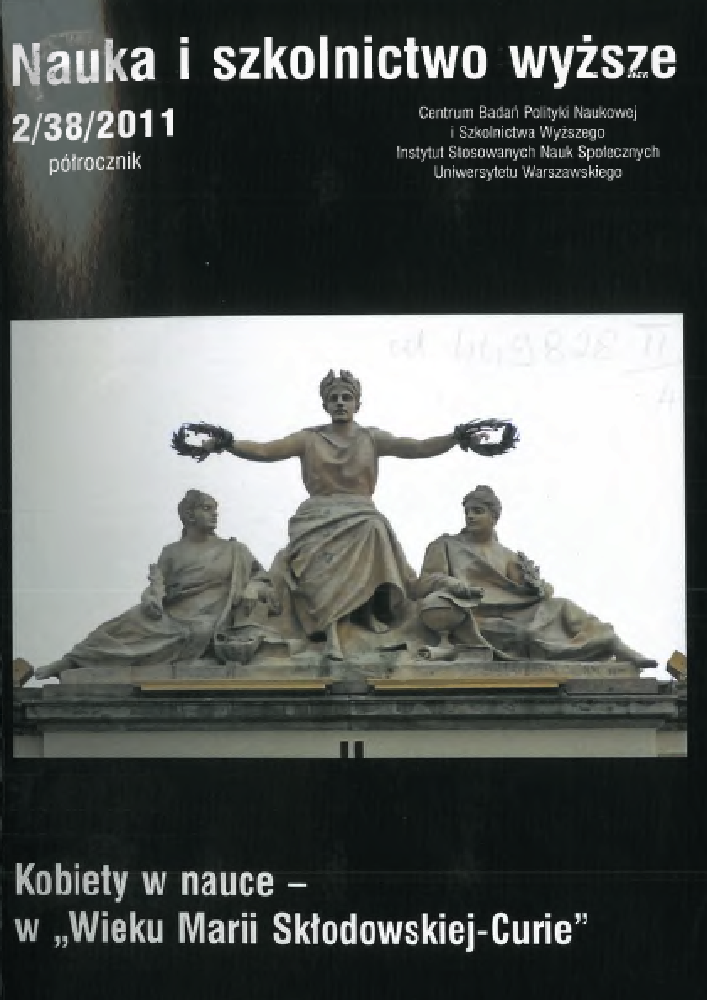Abstrakt
Podstawowym, intelektualnym celem badań akademickich jest obecnie udoskonalanie wiedzy. Znaczna część struktury, jak i cały charakter badania akademickiego na uniwersytetach na całym świecie są kształtowane przez przyjęcie niniejszego jako podstawowego celu intelektualnego. Jednak z punktu widzenia wkładu do życia człowieka tego typu badanie akademickie jest niebezpiecznie irracjonalne. Naruszone zostają trzy z czterech najbardziej podstawowych zasad racjonalnego rozwiązywania problemów. Potrzebna jest rewolucja celów i metod badania akademickiego, aby celem podstawowym było wspieranie mądrości jako zdolności do realizacji tego, co stanowi wartość dla siebie i innych, w tym wiedzy i technologicznego know-how, ale i wiele poza tym. Ta pilnie potrzebna rewolucja miałaby wpływ na każdy dział i aspekt przedsięwzięcia akademickiego.
Bibliografia
Appleyard B. 1992 Understanding the Present: Science and the Soul of Modem Man, Picador, London.
Aron R. 1968 Main Currents in Sociological Thoughł, Penguin, Harmondsworth, 1.1; 1970, t. 2.
Barnett R., Maxwell N. (red.) 2008 Wisdom in the University, Routledge, London.
Berlin I.1980 Against the Current, Hogarth Press, London.
Berman B. 1981 The Reenchantment ofthe World, Cornell University Press, Ithaca.
Einstein A. 1949 Autobiographical Notes, w: RA. Schilpp (red.), Albert Einstein: Philosopher-Scientist, Open Court, Illinois, s. 3-94.
Einstein A. 1973 Ideas and Opinions, Souvenir Press, London.
Farganis J. (red.) 1993 Readings in Social Theory: The classic Tradition to Post-Modernism, McGraw-Hill, New York
Feyerabend R. 1978 Against Method, Verso, London.
Feyerabend R. 1987 Farewell to Reason, Verso, London.
Gay P. 1973 The Enlightenment: An Interpretation, Wildwood House, London.
Hayek F.A. 1979 The Counter-Revolution of Science, Liberty Press, Indianapolis.
Laing R.D. 1965 The Dmded Self, Penguin, Harmondsworth.
Langley C. 2005 Soldiers in the Laboratory, Scientists for Global Responsibility, Folkstone.
Marcuse H. 1964 One Dimensional Man, Beacon Press, Boston.
Maxwell N. 1974 The Rationality of Scientific Discovery, „Philosophy of Science”, nr 41, s. 123-153,247-295.
Maxwell N. 1976 What's Wrong With Science?, Bran’s Head Books, Frome, England.
Maxwell N. 1980 Science, Reason, Knowledge and Wisdom: A Critigue of Specialism, „lnquiry”, nr 23, s. 19-81.
Maxwell N. 1984 From Knowledge to Wisdom, Blackwell, Oxford (wyd. 2 rozszerz., 2007, Earthscan, London).
Maxwell N. 1998 The Comprehensibility of the Universe, Oxford University Press, Oxford, pbk. 2003.
Maxwell N. 2001 The Human World in the Physical Universe, Rowman and Littlefield, Lanham, Maryland.
Maxwell N. 2004 Is Science Neurotic?, Imperial College Press, London.
Maxwell N. 2005 Popper, Kuhn, Lakatos and Aim-Oriented Empiricism, „Philosophia”, nr 32, s. 181-239.
Maxwell N. 2007 A Revolution for Science and the Humanities: From Knowledge to Wisdom, „London Review of Education”, nr 5, s. 97-115.
Nowotny H., Scott P, Gibbons M. 2001 Re-Thinking Science, Polity Press, Cambridge.
Penrose R. 2004 The Road to Reality, Jonathan Cape, London.
Popper K R. 1959 The Logic of Scientific Discovery, Hutchinson, London.
Popper K.R. 1961 The Poverty of Historicism, Routledge and Kegan Paul, London.
Popper K.R. 1962 The Open Society and Its Enemies, Routledge and Kegan Paul, London.
Popper K.R. 1963 Conjectures and Refutations, Routledge and Kegan Paul, London.
Roszak T. 1973 Where the Wasteland Ends, Faber and Faber, London.
Schwartz B. 1987 The Battle for Human Nature, W.W. Norton, New York.
Smith D. 2003 The Atlas of War and Peace, Earthscan, London.
Snow C.P. 1986 The Two Cultures: And a Second Look, Cambridge University Press, Cambridge.
